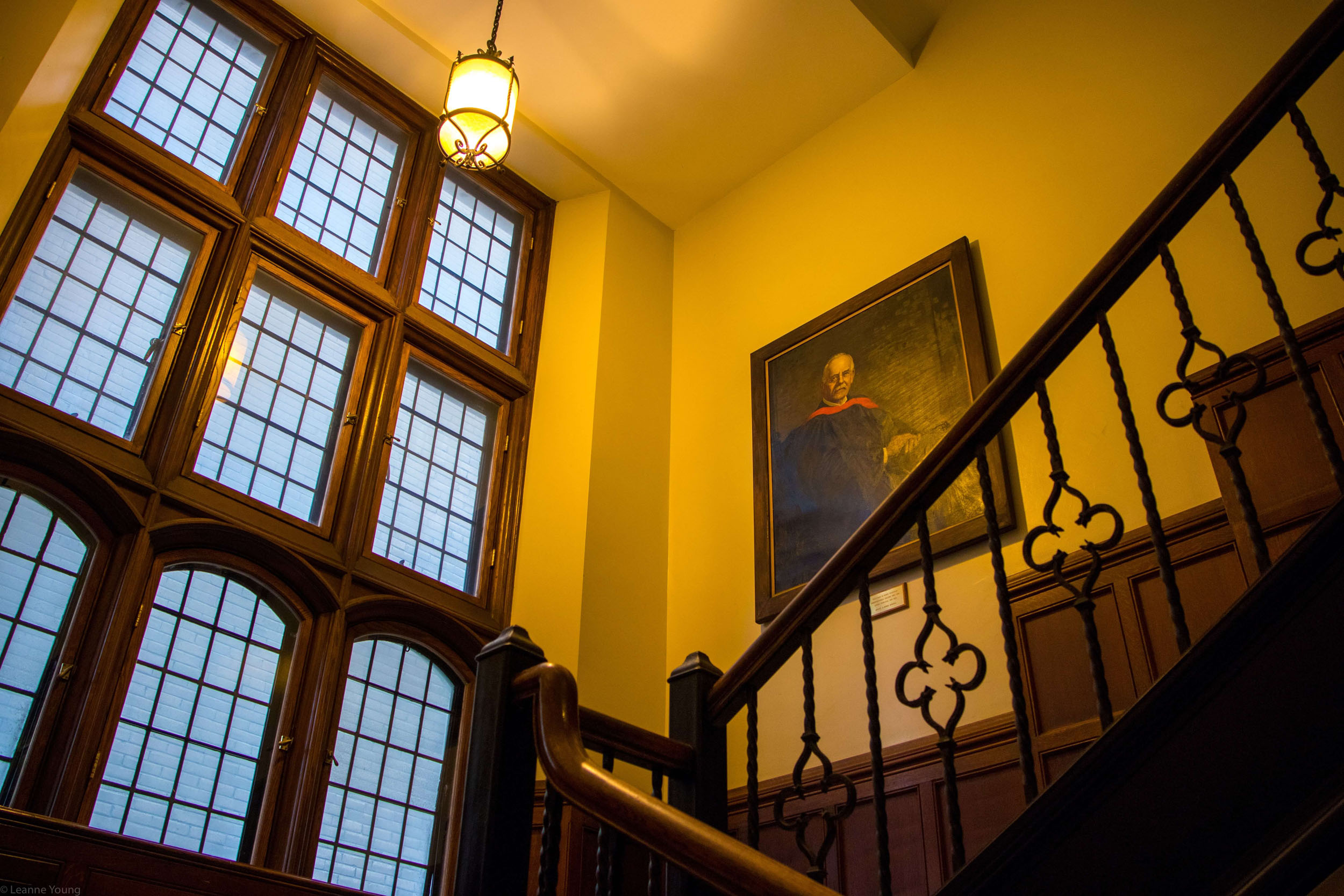Five McGill student organizations—Religious Studies Undergraduate Society (RSUS), Theological Undergraduate’s Student Association (TUSA), Arts Undergraduate Society (AUS), Student’s Society of McGill University (SSMU), and Union for Gender Empowerment (UGE)—have signed an open letter outlining concerns about Douglas B. Farrow, a professor in McGill’s School of Religious Studies (SRS). The letter was spearheaded by RSUS, which said they had been receiving complaints about Professor Farrow’s conduct for years. It states that Farrow repeatedly makes discriminatory comments about 2SLGBTQIA+ communities and calls on the SRS to assign other faculty members to teach three of his courses, which are required for the Bachelor of Theology (B.Th.) program. Furthermore, the letter urges the SRS to remove his work from the William and Henry Birks Building lobby display cases.
The letter further alleges that much of Farrow’s academic writing reflects discriminatory views and that in supporting and displaying his work the SRS is endorsing those views. It claims that both his class lectures and published work create an exclusionary environment by denying the legitimacy of 2SLGBTQIA+ identities.
Mo Rajji Courtney, BA ’20 and UGE’s outreach coordinator, wrote in the letter that the UGE has also received a growing number of complaints about Farrow during the past several years, and especially since the McGill Preferred First Names Policy (PFNP) was implemented in 2013.
“Students, particularly queer and trans students, told us that they didn’t feel safe in his classes […] and that it was seriously affecting their mental health,” Rajji Courtney wrote in an email to The McGill Tribune.
The letter mentions students’ frustration with Farrow’s disregard for the PFNP, noting that in the section of Farrow’s RELG 333 syllabus about the policy, he says nobody has to use language that they disagree with. The letter argues he is implying that someone could “disagree” with one’s preferred first name or pronouns.
Brooklyn Frizzle, U2 Arts and SSMU Vice-President University Affairs, believes that homophobic and transphobic conduct should be the concern of all McGill undergraduates.
“It’s more important now than ever for all of us to consider how academic freedom is defined,” Frizzle wrote. “I think it’s also important to remember that concerns over bigotted teachers, whether racist, sexist, homophobic, or transphobic, have always existed [….] It’s only now that these concerns are gaining widespread attention thanks to the tireless efforts of marginalized students.”
Alexander Plant, U3 Theology and TUSA President, says that although professors should be allowed academic freedom, it should not be at the expense of students feeling welcome in the classroom.
“Professors have the right to free speech and to argue whatever academic point they wish,” Plant wrote. “However […], free speech does not mean the freedom to say anything you want. Rather it is the freedom to express one’s ideas and thoughts in a composed and thoughtful manner. It also means allowing opposing views the chance to be heard and responded to with respect.”
Matthew Hawkins, U3 Arts and RSUS VP External, who took one of Farrow’s courses, noticed the behaviour of the Farrow that was highlighted in the letter.
“[Professor Farrow] made it very clear that his opinion on subjects such as trans rights, [2SLGBTQIA+] rights, and reproductive rights, were the correct opinion, not just in a certain academic line of thinking […], but as a deeply held conviction that he expected us to agree with de facto,” Hawkins wrote in an email to The McGill Tribune. “Further, when he voiced those views, it was clear that it was also a statement on how he regarded the students of varying identities within his classroom.”
Professor Garth Green, director of the School of Religious Studies, will soon talk to representatives of the student societies involved and colleagues in the administration.
“The School, no less than the Faculty and the university as such, takes this open letter, and the charges within it, very seriously indeed,” Green wrote in an email to The McGill Tribune. “Just as it takes its responsibility to cultivate [a] continually safe and respectful and challenging and rewarding learning environment for all of its students [seriously].”









